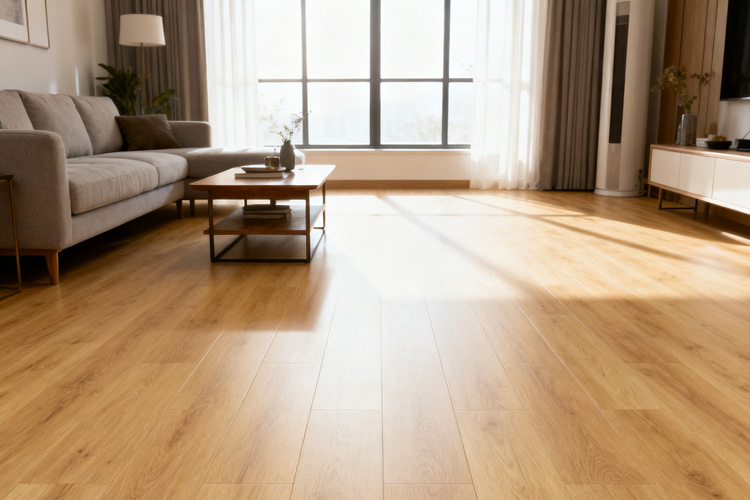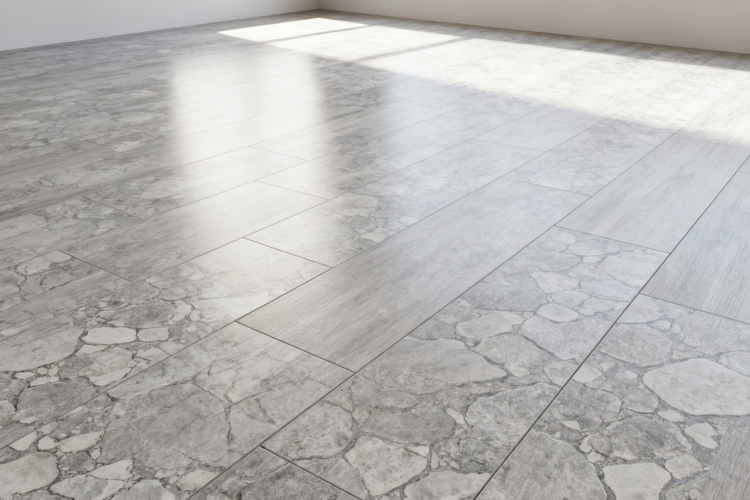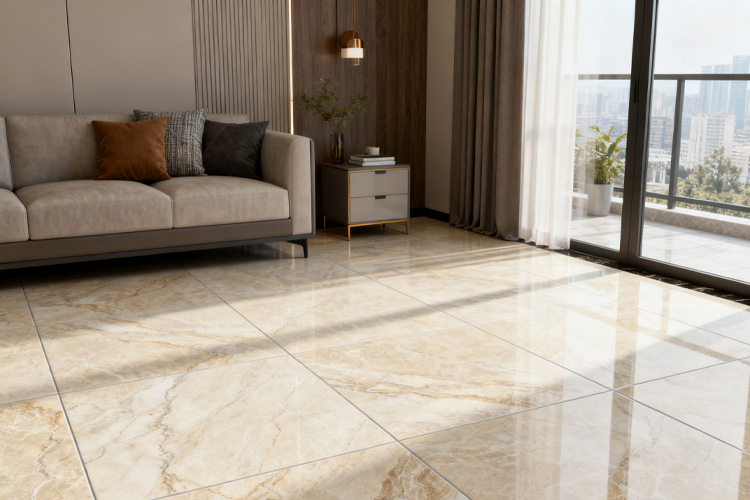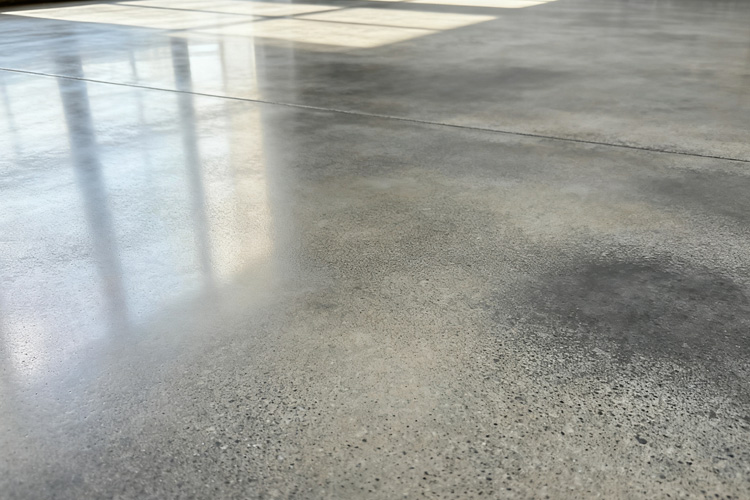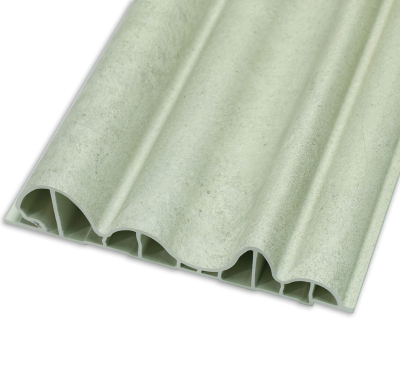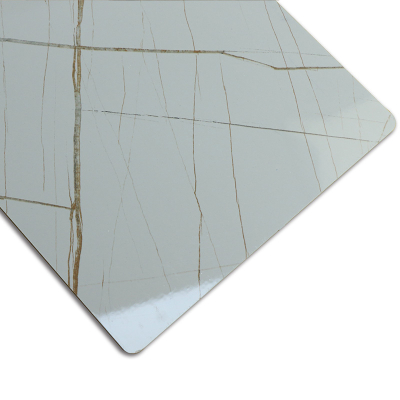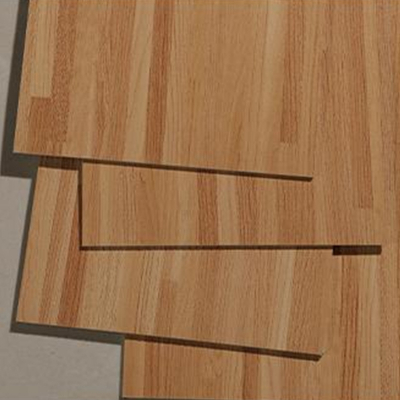Which flooring materials are entirely impervious to water?
Ok. Let's delve into "100% waterproof" flooring from a professional perspective.
First of all, it is necessary to clarify a core concept: in the professional building materials field, "100% waterproof" means that water cannot penetrate the overall structure of the floor material at all. Even if it is soaked for a long time, it will not cause damage, deformation, warping or mold growth. This is worlds apart from being "water-resistant" or "moisture-proof". Many floors can withstand occasional spills or short periods of dampness, but only a few can truly withstand continuous still water pressure, such as basement water backflow, a leaking washing machine, or a long-term damp environment throughout the entire bathroom floor.
The following are the flooring options that are internationally recognized as 100% waterproof. We will conduct an in-depth analysis of their composition, advantages and disadvantages, applicable scenarios, and installation points one by one.
1.Luxury Vinyl Board (LVP/LVT)
This is currently the most popular and fastest-growing category of 100% waterproof flooring in the global market. LVP (Luxury Vinyl Board) and LVT (Luxury Vinyl Tile) are basically the same in terms of waterproof performance. The main difference lies in that LVP focuses more on imitating wood grain, while LVT more often imitates the texture of Stone Plastic Composite, Stone Vinyl Flooring, Stone Effect Vinyl Flooring, or Terrazzo Tiles.
Core Structure and Waterproofing Principle:
LVP/LVT is typically composed of multi-layer composite structures, from top to bottom including:
Wear-resistant Layer: A transparent polyurethane layer responsible for resisting wear, scratches, and stains.
Decorative Layer: A high-definition photographic image layer, providing realistic textures of wood, Stone Plastic Composite, Stone Vinyl Flooring, Stone Effect Vinyl Flooring, and Terrazzo Tiles.
Core Layer: This is the key to waterproofing. There are mainly two types:
SPC (Stone Plastic Composite): It is made by mixing limestone powder (calcium carbonate) and polyvinyl chloride (PVC) stabilizer. Extremely hard, dense, with excellent dimensional stability, it is almost unaffected by changes in temperature and humidity, making it a model of 100% waterproofing.
WPC (Wood-Plastic Composite Core): It is made by foaming wood powder or bamboo powder with PVC. It is slightly softer than SPC, with a more comfortable foot feel and elasticity, but it is also 100% waterproof.
Backing Layer: Usually cork or IXPE cross-linked polyethylene foam, providing additional comfort, sound insulation, and stability.
Because its core layer is a solid vinyl/Stone Plastic Composite material with no water-absorbing components, water cannot penetrate at all. Moreover, if installed correctly, its locking system itself is also designed to be waterproof, which can effectively prevent water from seeping through the seams.
Professional Advantages:
True 100% waterproof: Can be installed in basements, full bathrooms, kitchens, laundry rooms, and any other damp areas.
Extremely high durability: The wear-resistant layer makes it highly scratch-resistant and impact-resistant, making it suitable for families with pets and children.
Beauty and diversity: The printing technology is extremely advanced, and the visual effect of Stone Vinyl Flooring and Stone Effect Vinyl Flooring can rival that of natural stone and Terrazzo Tiles.
Easy installation: Most are floating installations with a lock design, which can be directly laid on most existing floor surfaces.
Relatively comfortable foot feel: Especially the WPC core, which is warmer and more elastic than tiles.
Precautions and Disadvantages:
High requirements for the subfloor: Although it can be installed as a floating floor, the ground must be very flat (usually the variance for every 6 feet should not exceed 3/16 inches), otherwise, the locking system may loosen and create noise after long-term use.
UV sensitivity: Prolonged exposure to strong sunlight may cause fading.
Weight and furniture: The concentrated pressure from heavy furniture or appliances may leave permanent indentations on softer core LVP.
Environmental considerations: Some low-cost products may contain plasticizers such as phthalates. It is recommended to choose products that meet international environmental standards (such as FloorScore, GREENGUARD).
Although the floor itself is waterproof, in very damp basements, a vapor barrier still needs to be laid to prevent moisture from wicking up from the concrete subfloor and causing mold growth beneath the planks.
2. Sheet Vinyl
This is one of the most traditional and effective 100% waterproof solutions, especially widely used in commercial and medical institutions.
Core Structure and Waterproofing Principle:
Sheet vinyl is a large-format flooring material sold in rolls, typically with a width of 6 feet (about 1.83 meters) or 12 feet (about 3.66 meters). Its water resistance comes from the very few seams. In an ordinary room, there may be only one seam or no seam at all. The seams are sealed by heat welding or special seam sealers to form an almost seamless surface with no place for moisture to enter.
Professional Advantages:
Unparalleled waterproof barrier: Due to its minimal seams and sealability, it is the best choice for preventing liquid penetration and is often used in operating rooms, laboratories, and kitchens.
Durable and easy to clean: The surface is non-porous, resistant to chemicals, and extremely simple to maintain.
High cost-effectiveness: The material itself and installation costs are usually lower than those of high-end tiles or hardwood.
Soft foot feel: Offers excellent underfoot comfort.
Precautions and Disadvantages:
High professional installation requirements: It needs professional installers to precisely cut and weld, making it difficult to DIY.
Aesthetic limitations: Although printing technology has advanced, its visual effect is usually not as realistic as that of LVP/LVT Stone Effect Vinyl Flooring, and the design sense is relatively weak.
Prone to cuts: Sharp objects falling may puncture or scratch the surface, and it is difficult to repair.
Subfloor imperfections can be revealed: Any unevenness on the ground may become visible on the surface over time.
3. Porcelain & Ceramic Tile
The tiles themselves are 100% waterproof, but the key lies in the installation system.
Core Structure and Waterproofing Principle:
Tile Body: Especially porcelain tiles, the water absorption rate is extremely low (usually less than 0.5%), and they hardly absorb water. Porcelain is fired at high temperatures, forming a dense, vitreous structure that water cannot penetrate. This includes modern Terrazzo Tiles.
Key Steps - Grout and Underlayment:
Tiles themselves are waterproof, but the grout between the tiles is the biggest weakness. Traditional cement-based grout is porous.
Therefore, to achieve a 100% waterproof system, epoxy grout or single-component polyurethane grout must be used. These products themselves are 100% waterproof and can form a strong, pore-free seal.
In wet areas (such as shower rooms), a professional waterproof membrane must be applied to the cement board underlayment to form a complete "waterproof pan," ensuring that even if water seeps through the joints, it will not damage the wall or floor structure.
Professional Advantages:
Ultimate durability: Scratch-resistant, heat-resistant, fire-resistant, with an extremely long service life.
Health and environmental protection: Free of VOCs, does not release harmful gases, easy to keep clean, and hypoallergenic.
Unlimited design: With an extremely rich selection of sizes, colors, and textures, it can create unique artistic effects, including the classic look of Terrazzo Tiles.
Increasing property value: High-quality tile installation is considered permanent and can significantly enhance a property's value.
4. Polished Concrete
It is very popular in commercial and modern industrial-style residential designs.
Core Structure and Waterproofing Principle:
Concrete itself, if it has a high enough density and is properly treated, can have very low permeability. Through mechanical grinding and sealing, using penetrating sealers or epoxy/polyurethane topcoats, the pores on the concrete surface can be completely sealed, forming a hard, seamless, and 100% waterproof surface.
Professional Advantages:
Extremely durable and sturdy: Almost impossible to damage under normal conditions.
Seamless design: Completely seamless, with excellent hygiene and waterproof performance.
High thermal mass: It can be perfectly combined with radiant floor heating systems to store and release heat efficiently.
Modern Aesthetics: Offering a unique industrial style and a modern feel.
Precautions and Disadvantages:
Hard and cold: It has the hardest foot feel and is not suitable for all living spaces.
Potential for cracking: Shrinkage cracks in the underlying concrete may reflect to the surface.
Highly specialized installation: It requires heavy equipment and a highly professional team.
High cost: High-quality polishing and sealing processes are expensive.
Professional Purchasing Guide
Clarify the Requirement: What do you need waterproofing for? Is it daily splashing or a potential flood risk? This determines the waterproof level you need.
Examine the Core: For LVP, it is essential to ask whether the core is SPC (Stone Plastic Composite) or WPC. SPC is superior in stability and resistance to heavy pressure, while WPC offers a more comfortable foot feel.
Check for Certification: Look for the product's waterproof guarantee and third-party certification, such as AC (Abrasion Class) wear resistance rating, and FloorScore (indoor air quality certification).
Pay Attention to the Locking System: High-quality LVP, including Stone Vinyl Flooring, will have a "waterproof lock" or "double-lock" system, with sealing strips or special contour designs at the lock points to enhance the waterproofing of the seams.
Don't Neglect Installation: Even a 100% waterproof floor, if not installed properly, can allow water to seep in from the edges or joints, damaging the subfloor. Be sure to follow the manufacturer's installation guidelines or hire professional installers for wet areas.
Conclusion
In today's market, Stone Plastic Composite core luxury vinyl flooring (LVP/LVT), particularly Stone Vinyl Flooring and Stone Effect Vinyl Flooring, has become the top choice for most families seeking whole-home waterproof flooring due to its perfect balance—100% waterproofing, outstanding aesthetics, relatively simple installation, and reasonable cost. Sheet vinyl, on the other hand, is irreplaceable in practical scenarios that demand the ultimate waterproof barrier. Tiles, including the stylish Terrazzo Tiles, are a classic choice that is traditional, durable, and can significantly enhance value, but their success entirely depends on a professional installation system. Polished concrete is a high-end solution designed for specific aesthetic and functional requirements.
Therefore, when you are looking for "100% waterproof" flooring, you have several excellent options. Your final decision should be based on a comprehensive consideration of your budget, aesthetic preferences, specific installation environment, and requirements for durability and maintenance.

